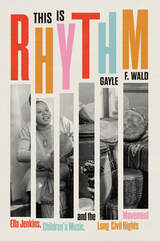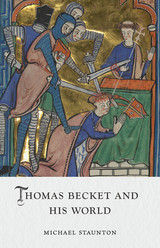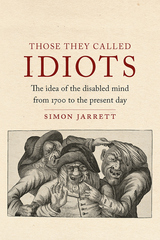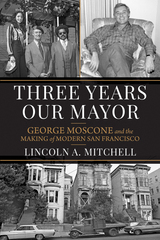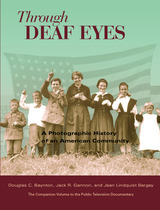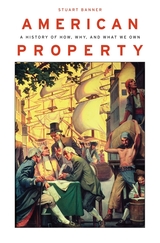
In America, we are eager to claim ownership: our homes, our ideas, our organs, even our own celebrity. But beneath our nation’s proprietary longing looms a troublesome question: what does it mean to own something? More simply: what is property?
The question is at the heart of many contemporary controversies, including disputes over who owns everything from genetic material to indigenous culture to music and film on the Internet. To decide if and when genes or culture or digits are a kind of property that can be possessed, we must grapple with the nature of property itself. How does it originate? What purposes does it serve? Is it a natural right or one created by law?
Accessible and mercifully free of legal jargon, American Property reveals the perpetual challenge of answering these questions, as new forms of property have emerged in response to technological and cultural change, and as ideas about the appropriate scope of government regulation have shifted. This first comprehensive history of property in the United States is a masterly guided tour through a contested human institution that touches all aspects of our lives and desires.
Stuart Banner shows that property exists to serve a broad set of purposes, constantly in flux, that render the idea of property itself inconstant. Despite our ideals of ownership, property has always been a means toward other ends. What property signifies and what property is, we come to see, has consistently changed to match the world we want to acquire.
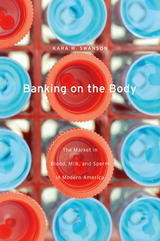
Scientific advances and economic forces have converged to create something unthinkable for much of human history: a robust market in human body products. Every year, countless Americans supply blood, sperm, and breast milk to “banks” that store these products for later use by strangers in routine medical procedures. These exchanges entail complicated questions. Which body products are donated and which sold? Who gives and who receives? And, in the end, who profits? In this eye-opening study, Kara Swanson traces the history of body banks from the nineteenth-century experiments that discovered therapeutic uses for body products to twenty-first-century websites that facilitate a thriving global exchange.
More than a metaphor, the “bank” has shaped ongoing controversies over body products as either marketable commodities or gifts donated to help others. A physician, Dr. Bernard Fantus, proposed a “bank” in 1937 to make blood available to all patients. Yet the bank metaphor labeled blood as something to be commercially bought and sold, not communally shared. As blood banks became a fixture of medicine after World War II, American doctors made them a front line in their war against socialized medicine. The profit-making connotations of the “bank” reinforced a market-based understanding of supply and distribution, with unexpected consequences for all body products, from human eggs to kidneys.
Ultimately, the bank metaphor straitjacketed legal codes and reinforced inequalities in medical care. By exploring its past, Banking on the Body charts the path to a more efficient and less exploitative distribution of the human body’s life-giving potential.
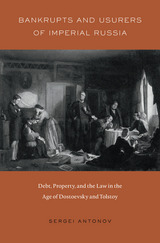
As readers of classic Russian literature know, the nineteenth century was a time of pervasive financial anxiety. With incomes erratic and banks inadequate, Russians of all social castes were deeply enmeshed in networks of credit and debt. The necessity of borrowing and lending shaped perceptions of material and moral worth, as well as notions of social respectability and personal responsibility. Credit and debt were defining features of imperial Russia’s culture of property ownership. Sergei Antonov recreates this vanished world of borrowers, bankrupts, lenders, and loan sharks in imperial Russia from the reign of Nicholas I to the period of great social and political reforms of the 1860s.
Poring over a trove of previously unexamined records, Antonov gleans insights into the experiences of ordinary Russians, rich and poor, and shows how Russia’s informal but sprawling credit system helped cement connections among property owners across socioeconomic lines. Individuals of varying rank and wealth commonly borrowed from one another. Without a firm legal basis for formalizing debt relationships, obtaining a loan often hinged on subjective perceptions of trustworthiness and reputation. Even after joint-stock banks appeared in Russia in the 1860s, credit continued to operate through vast networks linked by word of mouth, as well as ties of kinship and community. Disputes over debt were common, and Bankrupts and Usurers of Imperial Russia offers close readings of legal cases to argue that Russian courts—usually thought to be underdeveloped in this era—provided an effective forum for defining and protecting private property interests.


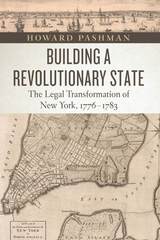
Building a Revolutionary State looks closely at one state, New York, to understand the broader question of how legal structures emerged from an insurgency. By examining law as New Yorkers experienced it in daily life during the war, Pashman reconstructs a world of revolutionary law that prevailed during America’s transition to independence. In doing so, Pashman explores a central paradox of the revolutionary era: aggressive enforcement of partisan property rules actually had stabilizing effects that allowed insurgents to build legal institutions that enjoyed popular support. Tracing the transformation from revolutionary disorder to legal order, Building a New Revolutionary State gives us a radically fresh way to understand the emergence of new states.
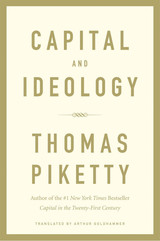
A New York Times Bestseller
An NPR Best Book of the Year
The epic successor to one of the most important books of the century: at once a retelling of global history, a scathing critique of contemporary politics, and a bold proposal for a new and fairer economic system.
Thomas Piketty’s bestselling Capital in the Twenty-First Century galvanized global debate about inequality. In this audacious follow-up, Piketty challenges us to revolutionize how we think about politics, ideology, and history. He exposes the ideas that have sustained inequality for the past millennium, reveals why the shallow politics of right and left are failing us today, and outlines the structure of a fairer economic system.
Our economy, Piketty observes, is not a natural fact. Markets, profits, and capital are all historical constructs that depend on choices. Piketty explores the material and ideological interactions of conflicting social groups that have given us slavery, serfdom, colonialism, communism, and hypercapitalism, shaping the lives of billions. He concludes that the great driver of human progress over the centuries has been the struggle for equality and education and not, as often argued, the assertion of property rights or the pursuit of stability. The new era of extreme inequality that has derailed that progress since the 1980s, he shows, is partly a reaction against communism, but it is also the fruit of ignorance, intellectual specialization, and our drift toward the dead-end politics of identity.
Once we understand this, we can begin to envision a more balanced approach to economics and politics. Piketty argues for a new “participatory” socialism, a system founded on an ideology of equality, social property, education, and the sharing of knowledge and power. Capital and Ideology is destined to be one of the indispensable books of our time, a work that will not only help us understand the world, but that will change it.
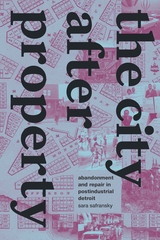
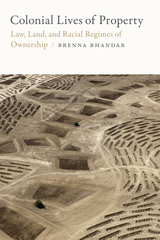
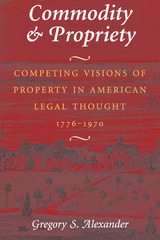
In demonstrating how the understanding of property as a private basis for the public good has competed with the better-known market-oriented conception, Alexander radically rewrites the history of property, with significant implications for current political debates and recent Supreme Court decisions.
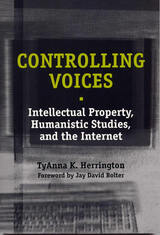
TyAnna K. Herrington explains current intellectual property law and examines the effect of the Internet and ideological power on its interpretation. Promoting a balanced development of our national culture, she advocates educators’ informed participation in ensuring egalitarian public access to information. She discusses the control of information and the creation of knowledge in terms of the way control functions under current property law.

Drawing on court transcripts, gallery archives, exhibition reviews, private correspondence—and a striking series of cartoons and photographs—The Culture of Property traverses the history of gender, material culture, urban life, colonialism, Irish and Scottish nationalism, and British citizenship. This fascinating book challenges recent scholarship in museum studies in light of ongoing culture wars. It should be required reading for cultural policy makers, museum professionals, and anyone interested in the history of art and Britain.
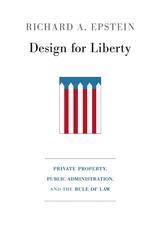
Following a vast expansion in the twentieth century, government is beginning to creak at the joints under its enormous weight. The signs are clear: a bloated civil service, low approval ratings for Congress and the President, increasing federal-state conflict, rampant distrust of politicians and government officials, record state deficits, and major unrest among public employees.
In this compact, clearly written book, the noted legal scholar Richard Epstein advocates a much smaller federal government, arguing that our over-regulated state allows too much discretion on the part of regulators, which results in arbitrary, unfair decisions, rent-seeking, and other abuses. Epstein bases his classical liberalism on the twin pillars of the rule of law and of private contracts and property rights—an overarching structure that allows private property to keep its form regardless of changes in population, tastes, technology, and wealth. This structure also makes possible a restrained public administration to implement limited objectives. Government continues to play a key role as night-watchman, but with the added flexibility in revenues and expenditures to attend to national defense and infrastructure formation.
Although no legal system can eliminate the need for discretion in the management of both private and public affairs, predictable laws can cabin the zone of discretion and permit arbitrary decisions to be challenged. Joining a set of strong property rights with sound but limited public administration could strengthen the rule of law, with its virtues of neutrality, generality, clarity, consistency, and forward-lookingness, and reverse the contempt and cynicism that have overcome us.

Disrupting the Speculative City tells the story of how the Haringey Development Vehicle community coalition, defeated one of the most ambitious programs of state-led gentrification in London. Drawing on the accounts of those at the heart of local statecraft and grassroots organizations, and analyzing crucial developments in property investment, this book explores a significant and inspirational success for campaigners in London, where social cleansing has become the default outcome of redevelopment.

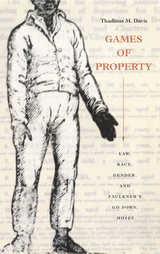
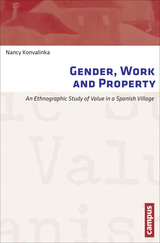
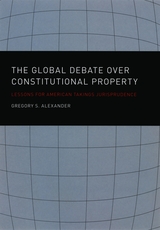
A society’s traditions and culture, Alexander argues, have a much greater effect on property rights. Laws must aim, then, to change cultural ideas of property, rather than deem whether one has the right to own it. Ultimately, Alexander builds a strong case for improving American takings law by borrowing features from the laws of other countries—particularly those laws based on the idea that owning property not only confers rights, but also entails responsibilities to society as a whole.
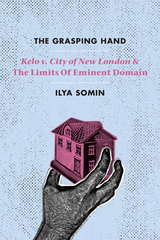
In this detailed study of one of the most controversial Supreme Court cases in modern times, Ilya Somin argues that Kelo was a grave error. Economic development and “blight” condemnations are unconstitutional under both originalist and most “living constitution” theories of legal interpretation. They also victimize the poor and the politically weak for the benefit of powerful interest groups and often destroy more economic value than they create. Kelo itself exemplifies these patterns. The residents targeted for condemnation lacked the influence needed to combat the formidable government and corporate interests arrayed against them. Moreover, the city’s poorly conceived development plan ultimately failed: the condemned land lies empty to this day, occupied only by feral cats. The Supreme Court’s unpopular ruling triggered an unprecedented political reaction, with forty-five states passing new laws intended to limit the use of eminent domain. But many of the new laws impose few or no genuine constraints on takings. The Kelo backlash led to significant progress, but not nearly as much as it may have seemed.
Despite its outcome, the closely divided 5-4 ruling shattered what many believed to be a consensus that virtually any condemnation qualifies as a public use under the Fifth Amendment. It also showed that there is widespread public opposition to eminent domain abuse. With controversy over takings sure to continue, The Grasping Hand offers the first book-length analysis of Kelo by a legal scholar, alongside a broader history of the dispute over public use and eminent domain and an evaluation of options for reform.
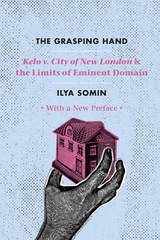
In this detailed study of one of the most controversial Supreme Court cases in modern times, Ilya Somin argues that Kelo was a grave error. Economic development and “blight” condemnations are unconstitutional under both originalist and most “living constitution” theories of legal interpretation. They also victimize the poor and the politically weak for the benefit of powerful interest groups and often destroy more economic value than they create. Kelo itself exemplifies these patterns. The residents targeted for condemnation lacked the influence needed to combat the formidable government and corporate interests arrayed against them. Moreover, the city’s poorly conceived development plan ultimately failed: the condemned land lies empty to this day, occupied only by feral cats. The Supreme Court’s unpopular ruling triggered an unprecedented political reaction, with forty-five states passing new laws intended to limit the use of eminent domain. But many of the new laws impose few or no genuine constraints on takings. The Kelo backlash led to significant progress, but not nearly as much as it may have seemed.
Despite its outcome, the closely divided 5-4 ruling shattered what many believed to be a consensus that virtually any condemnation qualifies as a public use under the Fifth Amendment. It also showed that there is widespread public opposition to eminent domain abuse. With controversy over takings sure to continue, The Grasping Hand offers the first book-length analysis of Kelo by a legal scholar, alongside a broader history of the dispute over public use and eminent domain and an evaluation of options for reform.

This book is a study of the historical record of Muslim women’s property rights and equity. Based on Islamic court documents of fifteenth-century Granada—documents that show a high degree of women’s involvement—the book examines women’s legal entitlements to acquire property as well as the social and economic significance of these rights to Granada’s female population and, by extension, to women in other Islamic societies.
The microhistory of women’s property rights is placed in a comparative historical, social, and economic context and is examined using a theoretical framework that suggests how this book’s conclusions might coexist with the Islamic feminist discourse on the law as a patriarchal system, serving to highlight both the uniqueness and the limitations of the Islamic case. The specifics presented in the case studies reveal the broader structures, constructs, rules, conditions, factors, and paradigms that shaped women’s property rights under Islamic law. They show that women’s property rights were more than just part of a legal system; they were the product of a legal philosophy and a pervasive paradigm that made property ownership a normal construct of the Muslim woman’s legal persona and a norm of her existence.
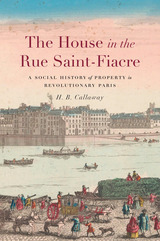
A bold account of property reform during the French Revolution, arguing that the lofty democratic ideals enshrined by revolutionary leaders were rarely secured in practice—with lasting consequences.
Property reform was at the heart of the French Revolution. As lawmakers proclaimed at the time, and as historians have long echoed, the Revolution created modern property rights. Under the new regime, property was redefined as an individual right to which all citizens were entitled. Yet as the state seized assets and prepared them for sale, administrators quickly found that realizing the dream of democratic property rights was far more complicated than simply rewriting laws.
H. B. Callaway sifts through records on Parisian émigrés who fled the country during the Revolution, leaving behind property that the state tried to confiscate. Immediately, officials faced difficult questions about what constituted property, how to prove ownership, and how to navigate the complexities of credit arrangements and family lineage. Mothers fought to protect the inheritances of their children, tenants angled to avoid rent payments, and creditors sought their dues. In attempting to execute policy, administrators regularly exercised their own judgment on the validity of claims. Their records reveal far more continuity between the Old Regime and revolutionary practices than the law proclaimed. Property ownership continued to depend on webs of connections beyond the citizen-state relationship, reinforced by customary law and inheritance traditions. The resulting property system was a product of contingent, on-the-ground negotiations as much as revolutionary law.
The House in the Rue Saint-Fiacre takes stock of the contradictions on which modern property rights were founded. As Callaway shows, the property confiscations of Parisian émigrés are a powerful, clarifying lens on the idea of ownership even as it exists today.
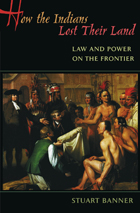
Between the early seventeenth century and the early twentieth,nearly all the land in the United States was transferred from AmericanIndians to whites. This dramatic transformation has been understood in two very different ways--as a series of consensual transactions, but also as a process of violent conquest. Both views cannot be correct. How did Indians actually lose their land?
Stuart Banner provides the first comprehensive answer. He argues that neither simple coercion nor simple consent reflects the complicated legal history of land transfers. Instead, time, place, and the balance of power between Indians and settlers decided the outcome of land struggles. As whites' power grew, they were able to establish the legal institutions and the rules by which land transactions would be made and enforced.
This story of America's colonization remains a story of power, but a more complex kind of power than historians have acknowledged. It is a story in which military force was less important than the power to shape the legal framework within which land would be owned. As a result, white Americans--from eastern cities to the western frontiers--could believe they were buying land from the Indians the same way they bought land from one another. How the Indians Lost Their Land dramatically reveals how subtle changes in the law can determine the fate of a nation, and our understanding of the past.
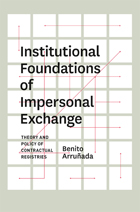
Benito Arruñada aims to avoid such failures by deepening our understanding of both the value of registries and the organizational requirements for constructing them. Presenting a theory of how registries strengthen property rights and reduce transaction costs, he analyzes the major trade-offs and proposes principles for successfully building registries in countries at different stages of development. Arruñada focuses on land and company registries, explaining the difficulties they face, including current challenges like the subprime mortgage crisis in the United States and the dubious efforts made in developing countries toward universal land titling. Broadening the account, he extends his analytical framework to other registries, including intellectual property and organized exchanges of financial derivatives. With its nuanced presentation of the theoretical and practical implications, Institutional Foundations of Impersonal Exchange significantly expands our understanding of how public registries facilitate economic growth.
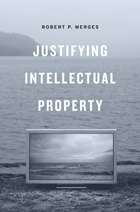
Why should a property interest exist in an intangible item? In recent years, arguments over intellectual property have often divided proponents—who emphasize the importance of providing incentives for producers of creative works— from skeptics who emphasize the need for free and open access to knowledge.
In a wide-ranging and ambitious analysis, Robert P. Merges establishes a sophisticated rationale for the most vital form of modern property: IP rights. His insightful new book answers the many critics who contend that these rights are inefficient, unfair, and theoretically incoherent. But Merges’ vigorous defense of IP is also a call for appropriate legal constraints and boundaries: IP rights are real, but they come with real limits.
Drawing on Kant, Locke, and Rawls as well as contemporary scholars, Merges crafts an original theory to explain why IP rights make sense as a reward for effort and as a way to encourage individuals to strive. He also provides a novel explanation of why awarding IP rights to creative people is fair for everyone else in society, by contributing to a just distribution of resources. Merges argues convincingly that IP rights are based on a solid ethical foundation, and—when subject to fair limits—these rights are an indispensable part of a well-functioning society.
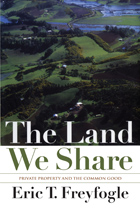
Is private ownership an inviolate right that individuals can wield as they see fit? Or is it better understood in more collective terms, as an institution that communities reshape over time to promote evolving goals? What should it mean to be a private landowner in an age of sprawling growth and declining biological diversity?
These provocative questions lie at the heart of this perceptive and wide-ranging new book by legal scholar and conservationist Eric Freyfogle. Bringing together insights from history, law, philosophy, and ecology, Freyfogle undertakes a fascinating inquiry into the ownership of nature, leading us behind publicized and contentious disputes over open-space regulation, wetlands protection, and wildlife habitat to reveal the foundations of and changing ideas about private ownership in America.
Drawing upon ideas from Thomas Jefferson, Henry George, and Aldo Leopold and interweaving engaging accounts of actual disputes over land-use issues, Freyfogle develops a powerful vision of what private ownership in America could mean—an ownership system, fair to owners and taxpayers alike, that fosters healthy land and healthy economies.
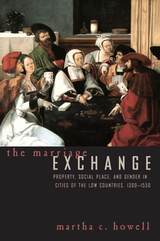
Based on extensive research in this archive, this book reveals how these documents were produced in a centuries-long effort to regulate—and ultimately to redefine—property and gender relations. At the center of the transformation was a shift from a marital property regime based on custom to one based on contract. In the former, a widow typically inherited her husband's property; in the latter, she shared it with or simply held it for his family or offspring. Howell asks why the law changed as it did and assesses the law's effects on both social and gender meanings but she insists that the reform did not originate in general dissatisfaction with custom or a desire to disempower widows. Instead, it was born in a complex economic, social and cultural history during which Douaisiens gradually came to think about both property and gender in new ways.
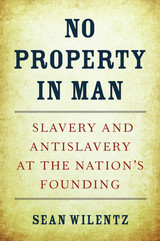
A radical reconstruction of the founders’ debate over slavery and the Constitution.
Americans revere the Constitution even as they argue fiercely over its original toleration of slavery. Some historians have charged that slaveholders actually enshrined human bondage at the nation’s founding. The acclaimed political historian Sean Wilentz shares the dismay but sees the Constitution and slavery differently. Although the proslavery side won important concessions, he asserts, antislavery impulses also influenced the framers’ work. Far from covering up a crime against humanity, the Constitution restricted slavery’s legitimacy under the new national government. In time, that limitation would open the way for the creation of an antislavery politics that led to Southern secession, the Civil War, and Emancipation.
Wilentz’s controversial and timely reconsideration upends orthodox views of the Constitution. He describes the document as a tortured paradox that abided slavery without legitimizing it. This paradox lay behind the great political battles that fractured the nation over the next seventy years. As Southern Fire-eaters invented a proslavery version of the Constitution, antislavery advocates, including Abraham Lincoln and Frederick Douglass, proclaimed antislavery versions based on the framers’ refusal to validate what they called “property in man.”
No Property in Man invites fresh debate about the political and legal struggles over slavery that began during the Revolution and concluded with the Confederacy’s defeat. It drives straight to the heart of the most contentious and enduring issue in all of American history.
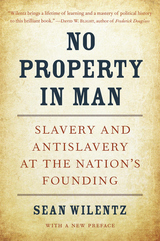
“Wilentz brings a lifetime of learning and a mastery of political history to this brilliant book.”
—David W. Blight, author of Frederick Douglass
A New York Times Book Review Editors’ Choice
A Foreign Affairs Best Book of the Year
Americans revere the Constitution even as they argue fiercely over its original toleration of slavery. In this essential reconsideration of the creation and legacy of our nation’s founding document, Sean Wilentz reveals the tortured compromises that led the Founders to abide slavery without legitimizing it, a deliberate ambiguity that fractured the nation seventy years later. Contesting the Southern proslavery version of the Constitution, Abraham Lincoln and Frederick Douglass pointed to the framers’ refusal to validate what they called “property in man.” No Property in Man has opened a fresh debate about the political and legal struggles over slavery that began during the Revolution and concluded with the Civil War. It drives straight to the heart of the single most contentious issue in all of American history.
“Revealing and passionately argued…[Wilentz] insists that because the framers did not sanction slavery as a matter of principle, the antislavery legacy of the Constitution has been…‘misconstrued’ for over 200 years.”
—Khalil Gibran Muhammad, New York Times
“Wilentz’s careful and insightful analysis helps us understand how Americans who hated slavery, such as Abraham Lincoln and Frederick Douglass, could come to see the Constitution as an ally in their struggle.”
—Eric Foner
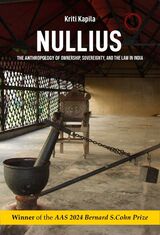
Nullius is an award-winning anthropological account of the troubled status of ownership in India and its consequences for our understanding of sovereignty and social relations. Though property rights and ownership are said to be a cornerstone of modern law, in the Indian case they are often a spectral presence. Kapila offers a detailed study of paradigms where proprietary relations have been erased, denied, misappropriated.
The book examines three forms of negation, where the Indian state de facto adopted doctrines of terra nullius (in the erasure of indigenous title), res nullius (in acquiring museum objects), and, controversially, corpus nullius (in denying citizens ownership of their bodies under biometrics). The result is a pathbreaking reconnection of questions of property, exchange, dispossession, law, and sovereignty.
Nullius is the winner of the 2024 Bernard S. Cohn Prize, Association of Asian Studies.
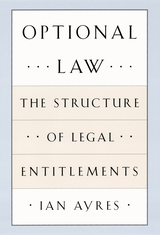
Ayres identifies flaws in the current system and shows how option theory can radically expand and improve the ways that lawmakers structure legal entitlements. An option-based system, Ayres shows, gives parties the option to purchase—or the option to sell—the relevant legal entitlement. Choosing to exercise a legal option forces decisionmakers to reveal information about their own valuation of the entitlement. And, as with auctions, entitlements in option-based law naturally flow to those who value them the most. Seeing legal entitlements through this lens suggests a variety of new entitlement structures from which lawmakers might choose. Optional Law provides a theory for determining which structure is likely to be most effective in harnessing parties' private information.
Proposing a practical approach to the foundational question of how to allocate and protect legal rights, Optional Law will be applauded by legal scholars and professionals who continue to seek new and better ways of fostering both equitable and efficient legal rules.
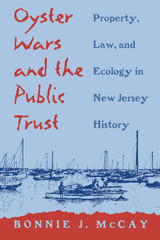
Bonnie McCay now puts that doctrine in perspective by tracing the history of attempts to defend common resources against privatization. She tells of conflicts in New Jersey communities over the last two centuries: how fishermen dependent on common-use rights employed poaching, piracy, and test cases to protect their stake in tidal resources, and how oyster planters whose businesses depended on the enclosure of marine commons engineered test cases of their own to seek protection for their claims.
McCay presents some of the most significant cases relating to fishing and waterfront development, describing how the oyster wars were fought on the waters and in the court rooms—and how the public trust doctrine was sometimes reinterpreted to support private interests. She explores the events and people behind the proceedings and addresses the legal, social, and ecological issues these cases represent.
Oyster Wars and the Public Trust is an important study of contested property rights from an anthropological perspective that also addresses significant issues in political ecology, institutional economics, environmental history, and the evolution of law. It contributes to our understanding of how competing claims to resources have evolved in the United States and shows that making nature a commodity remains a moral problem even in a market-driven economy.
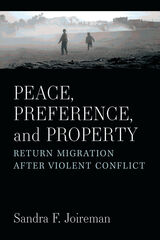
Growing numbers of people are displaced by war and violent conflict. In Ukraine, Afghanistan, Ethiopia, Myanmar, Syria, and elsewhere violence pushes civilian populations from their homes and sometimes from their countries, making them refugees. In previous decades, millions of refugees and displaced people returned to their place of origin after conflict or were resettled in countries in the Global North. Now displacements last longer, the number of people returning home is lower, and opportunities for resettlement are shrinking. More and more people spend decades in refugee camps or displaced within their own countries, raising their children away from their home communities and cultures. In this context, international policies encourage return to place of origin.
Using case studies and first-person accounts from interviews and fieldwork in post-conflict settings such as Uganda, Liberia, and Kosovo, Sandra F. Joireman highlights the divergence between these policies and the preferences of conflict-displaced people. Rather than looking from the top down, at the rights that people have in international and domestic law, the perspective of this text is from the ground up—examining individual and household choices after conflict. Some refugees want to go home, some do not want to return, some want to return to their countries of origin but live in a different place, and others are repatriated against their will when they have no other options. Peace, Preference, and Property suggests alternative policies that would provide greater choice for displaced people in terms of property restitution and solutions to displacement.
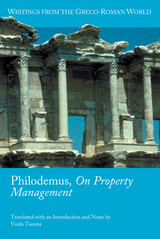
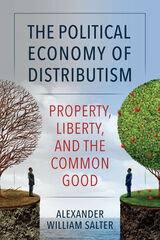
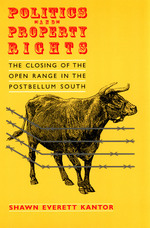
In this original study, Kantor uses economic analysis to show that, contrary to traditional historical interpretation, this conflict was centered on anticipated benefits from fencing livestock rather than on class, cultural, or ideological differences. Kantor proves that the stock law brought economic benefits; at the same time, he analyzes why the law's adoption was hindered in many areas where it would have increased wealth. This argument illuminates the dynamics of real-world institutional change, where transactions are often costly and where some inefficient institutions persist while others give way to economic growth.
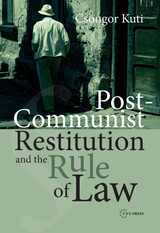
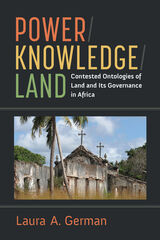
The 2008 outcry over the “global land grab” made headlines around the world, leading to a sustained interest in the dynamics and fate of customary land among both academics and development practitioners. In Power/Knowledge/Land, author Laura German profiles the consolidation of a global knowledge regime surrounding land and its governance within international development circles in the decade following this outcry, and the growing enrollment of previously antagonistic actors within it. Drawing theoretical insights on the inseparability of power and knowledge, German reveals the dynamics of knowledge practices that have enabled the longstanding project of commodifying customary land – and the more contemporary interests in acquiring and financializing it – to be advanced and legitimated by capturing the energies of socially progressive forces. By bringing theories of change from the emergent land governance orthodoxy into dialogue with the ethnographic evidence from across the African continent and beyond, concepts masquerading as universal and self-evident truths are provincialized, and their role in commodifying customary land and entrenching colonial futurities put on display. In doing so, the volume brings wider academic debates surrounding productive forms of power into the heart of the land grab debate, while enhancing their accessibility to a wider audience.
Power/Knowledge/Land takes current scholarly debates surrounding land grabs beyond their theoretical moorings in critical agrarian studies, political economy and globalization into contemporary debates surrounding the politics of knowledge—from theories of coloniality to ontological anthropology, thereby enabling new dynamics of the phenomenon to be revealed. The book deploys a pioneering epistemology integrating deconstructionist approaches (to reveal the tactics, truth claims and ontological assumptions of global knowledge brokers), with systematic qualitative reviews and comparative study (to contrast these dominant constructs with the evidence and reveal alternative ways of knowing “land” and practicing “security” from the ethnographic literature). This helps to reveal the Western and modernist biases in the narratives that have been advanced about women, custom, and security, revealing how the coloniality of knowledge works to grease the wheels of land takings by advancing highly provincialized constructs aligned with western interests as universal truths.
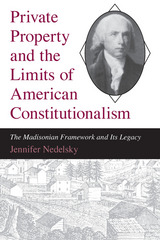
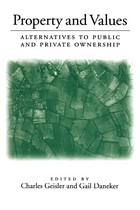
Property and Values offers a fresh look at property rights issues, bringing together scholars, attorneys, government officials, community development practitioners, and environmental advocates to consider new and more socially equitable forms of ownership. Based on a Harvard Law School conference organized by the Equity Trust, Inc., in cooperation with the American Bar Association's Commission on Homelessness and Poverty, the book:
- explains ownership as an evolving concept, determined by social processes and changing social relations
- challenges conventional public-private ownership categories
- surveys recent studies on the implications of public policy on property values
- offers examples from other cultures of ownership realities unfamiliar or forgotten in the United States
- compares experiments in ownership/equity allocation affecting social welfare and environmental conservation
Property and Values is a thought-provoking contribution to the literature on property for planners, lawyers, government officials, resource economists, environmental managers, and social scientists as well as for students of planning, environmental law, geography, or public policy.
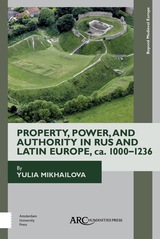
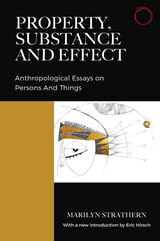
Property, Substance, and Effect draws on Marilyn Strathern’s longstanding interest in the reification of social relations. If the world is shrinking in terms of resources and access to them, it is expanding in terms of new candidates for proprietorship. How new relations are brought into being is among the many questions about property, ownership, and knowledge that these essays bring together.
Twenty years have not diminished the interest in the book’s opening challenge: if one were inventing a method of enquiry by which to configure the complexity of social life, one might wish to invent something like the anthropologist’s ethnographic practice. A wide range of studies deliberately brings into conversation claims people make on one another through relations imagined in the form of body-substance along with the increasing visibility of conceptual or intellectual work as property. Whether one lives in Papua New Guinea or Great Britain, categories of knowledge are being dissolved and reformed at a tempo that calls for reflection—and for the kind of lateral reflection afforded through the “ethnographic effect.”

A conservation easement is a legal agreement between a property owner and a conservation organization, generally a private nonprofit land trust, that restricts the type and amount of development that can be undertaken on that property. Conservation easements protect land for future generations while allowing owners to retain property rights, at the same time providing them with significant tax benefits. Conservation easements are among the fastest growing methods of land preservation in the United States today.
Protecting the Land provides a thoughtful examination of land trusts and how they function, and a comprehensive look at the past and future of conservation easements. The book:
- provides a geographical and historical overview of the role of conservation easements
- analyzes relevant legislation and its role in achieving community conservation goals
- examines innovative ways in which conservation easements have been used around the country
- considers the links between social and economic values and land conservation
Contributors, including noted tax attorney and land preservation expert Stephen Small, Colorado's leading land preservation attorney Bill Silberstein, and Maine Coast Heritage Trust's general counsel Karin Marchetti, describe and analyze the present status of easement law. Sharing their unique perspectives, experts including author and professor of geography Jack Wright, Dennis Collins of the Wildlands Conservancy, and Chuck Roe of the Conservation Trust of North Carolina offer case studies that demonstrate the flexibility and diversity of conservation easements. Protecting the Land offers a valuable overview of the history and use of conservation easements and the evolution of easement-enabling legislation for professionals and citizens working with local and national land trusts, legal advisors, planners, public officials, natural resource mangers, policymakers, and students of planning and conservation.
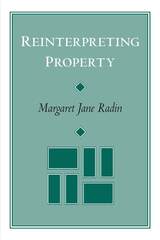
Departing from traditional libertarian and economic theories of property, Margaret Jane Radin argues that the law should take into account nonmonetary personal value attached to property—and that some things, such as bodily integrity, are so personal they should not be considered property at all. Gathered here are pieces ranging from Radin's classic early essay on property and personhood to her recent works on governmental "taking" of private property.
Margaret Jane Radin is professor of law at Stanford University. She is the author of over twenty-five articles on legal and political theory.
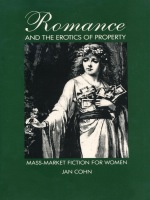
Cohn argues that a full understanding of the contemporary romance requires an investigation of its literary and historical sources and analogues. Three principal sources are examined in the context of women's history in bourgeois society. Pride and Prejudice, Jane Erye, and Gone With the Wind demonstrate the development of romance fiction's themes, yet in all three the central love story is complicated by issues of property, the sign of male power. Jan Cohn further considers the development of the genre n the fictions of Harriet Lewis and May Agnes Fleming, prolific and popular American romance writers of the late nineteenth century who developed the role of the villain, thereby bringing into focus the sexual and economic struggles faced by the heroine.
Romance and the Erotics of Property sets romance fiction against a historic and literary background, arguing that contemporary romance disguises as tales of love the subversive fantasies of female appropriation and male property and power.
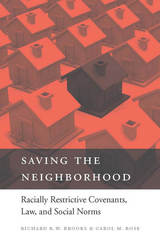
Saving the Neighborhood tells the charged, still controversial story of the rise and fall of racially restrictive covenants in America, and offers rare insight into the ways legal and social norms reinforce one another, acting with pernicious efficacy to codify and perpetuate intolerance.
The early 1900s saw an unprecedented migration of African Americans leaving the rural South in search of better work and equal citizenship. In reaction, many white communities instituted property agreements—covenants—designed to limit ownership and residency according to race. Restrictive covenants quickly became a powerful legal guarantor of segregation, their authority facing serious challenge only in 1948, when the Supreme Court declared them legally unenforceable in Shelley v. Kraemer. Although the ruling was a shock to courts that had upheld covenants for decades, it failed to end their influence. In this incisive study, Richard Brooks and Carol Rose unpack why.
At root, covenants were social signals. Their greatest use lay in reassuring the white residents that they shared the same goal, while sending a warning to would-be minority entrants: keep out. The authors uncover how loosely knit urban and suburban communities, fearing ethnic mixing or even “tipping,” were fair game to a new class of entrepreneurs who catered to their fears while exacerbating the message encoded in covenants: that black residents threatened white property values. Legal racial covenants expressed and bestowed an aura of legitimacy upon the wish of many white neighborhoods to exclude minorities. Sadly for American race relations, their legacy still lingers.
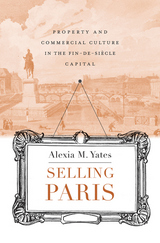
In 1871 Paris was a city in crisis. Besieged during the Franco-Prussian War, its buildings and boulevards were damaged, its finances mired in debt, and its new government untested. But if Parisian authorities balked at the challenges facing them, entrepreneurs and businessmen did not. Selling Paris chronicles the people, practices, and politics that spurred the largest building boom of the nineteenth century, turning city-making into big business in the French capital.
Alexia Yates traces the emergence of a commercial Parisian housing market, as private property owners, architects, speculative developers, and credit-lending institutions combined to finance, build, and sell apartments and buildings. Real estate agents and their innovative advertising strategies fed these new residential spaces into a burgeoning marketplace. Corporations built empires with tens of thousands of apartments under management for the benefit of shareholders. By the end of the nineteenth century, the Parisian housing market caught the attention of the wider public as newspapers began reporting its ups and downs.
The forces that underwrote Paris’s creation as the quintessentially modern metropolis were not only state-centered or state-directed but also grew out of the uncoordinated efforts of private actors and networks. Revealing the ways housing and property became commodities during a crucial period of urbanization, Selling Paris is an urban history of business and a business history of a city that transforms our understanding of both.
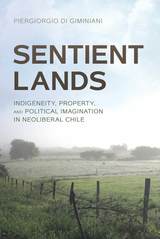
Sentient Lands is a historically grounded ethnography of the Mapuche people’s engagement with state-run reconciliation and land-restitution efforts. Piergiorgio Di Giminiani analyzes environmental relations, property, state power, market forces, and indigeneity to illustrate how land connections are articulated, in both landscape experiences and land claims. Rather than viewing land claims as simply bureaucratic procedures imposed on local understandings and experiences of land connections, Di Giminiani reveals these processes to be disputed practices of world making.
Ancestral land formation is set in motion by the entangled principles of Indigenous and legal land ontologies, two very different and sometimes conflicting processes. Indigenous land ontologies are based on a relation between two subjects—land and people—both endowed with sentient abilities. By contrast, legal land ontologies are founded on the principles of property theory, wherein land is an object of possession that can be standardized within a regime of value. Governments also use land claims to domesticate Indigenous geographies into spatial constructs consistent with political and market configurations.
Exploring the unexpected effects on political activism and state reparation policies caused by this entanglement of Indigenous and legal land ontologies, Di Giminiani offers a new analytical angle on Indigenous land politics.

This book explores the relationship between women and property in the Greek lands and their broader social position in the century that culminated with the establishment of the national Greek state (1750–1850). Evdoxios Doxiadis focuses on the status and rights of Greek women in the later Ottoman period, the decade-long Greek War of Independence, and the first decades of the Greek state, seeking to reveal the impact that the pursuit of modernization by the early Greek governments had on women. Through the systematic examination of numerous legal documents in notarial archives from four distinct regions (Naxos, Mykonos, Athens, and Leonidio), the position of women in Greek societies of the period is illuminated in all its complexity and regional diversity. Special emphasis is placed on women’s ability in some areas to defend their property rights and be active economic agents.
Although the Greek revolutionaries and the Greek state did not curtail the rights of women with respect to property, the very institutions that were fundamental in the creation of the Greek state transformed the established relationship between women and property. Doxiadis shows that modernization proved to be an oppressive force for Greek women—though in a much more clandestine fashion than perhaps expected in other European states.

We all hope that we will be cared for as we age. But the details of that care, for caretaker and recipient alike, raise some of life’s most vexing questions. From the mid-nineteenth to the mid-twentieth century, as an explosive economy and shifting social opportunities drew the young away from home, the elderly used promises of inheritance to keep children at their side. Hendrik Hartog tells the riveting, heartbreaking stories of how families fought over the work of care and its compensation.
Someday All This Will Be Yours narrates the legal and emotional strategies mobilized by older people, and explores the ambivalences of family members as they struggled with expectations of love and duty. Court cases offer an extraordinary glimpse of the mundane, painful, and intimate predicaments of family life. They reveal what it meant to be old without the pensions, Social Security, and nursing homes that now do much of the work of serving the elderly. From demented grandparents to fickle fathers, from litigious sons to grateful daughters, Hartog guides us into a world of disputed promises and broken hearts, and helps us feel the terrible tangle of love and commitments and money.
From one of the bedrocks of the human condition—the tension between the infirmities of the elderly and the longings of the young—emerges a pioneering work of exploration into the darker recesses of family life. Ultimately, Hartog forces us to reflect on what we owe and are owed as members of a family.
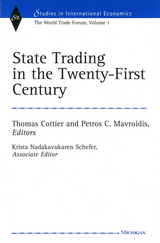
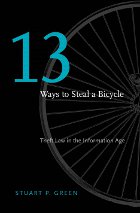
Theft claims more victims and causes greater economic injury than any other criminal offense. Yet theft law is enigmatic, and fundamental questions about what should count as stealing remain unresolved—especially misappropriations of intellectual property, information, ideas, identities, and virtual property.
In Thirteen Ways to Steal a Bicycle, Stuart Green assesses our current legal framework at a time when our economy increasingly commodifies intangibles and when the means of committing theft and fraud grow ever more sophisticated. Was it theft for the editor of a technology blog to buy a prototype iPhone he allegedly knew had been lost by an Apple engineer in a Silicon Valley bar? Was it theft for doctors to use a patient’s tissue without permission in order to harvest a valuable cell line? For an Internet activist to publish tens of thousands of State Department documents on his Web site?
In this full-scale critique, Green reveals that the last major reforms in Anglophone theft law, which took place almost fifty years ago, flattened moral distinctions, so that the same punishments are now assigned to vastly different offenses. Unreflective of community attitudes toward theft, which favor gradations in blameworthiness according to what is stolen and under what circumstances, and uninfluenced by advancements in criminal law theory, theft law cries out for another reformation—and soon.
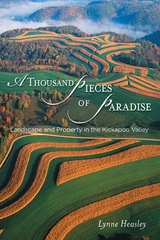
A Thousand Pieces of Paradise is an ecological history of property and a cultural history of rural ecosystems set in one of the Midwest’s most historically significant regions, the Kickapoo River Valley. Whether examining the national war on soil erosion, Amish migration, a Corps of Engineers dam project, or Native American land claims, Lynne Heasley traces the history of modern American property debates. Her book holds powerful lessons for rural communities seeking to reconcile competing values about land and their place in it.

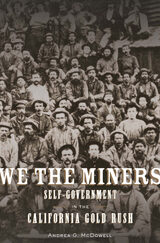
A Financial Times Best History Book of the Year
A surprising account of frontier law that challenges the image of the Wild West. In the absence of state authority, Gold Rush miners crafted effective government by the people—but not for all the people.
Gold Rush California was a frontier on steroids: 1,500 miles from the nearest state, it had a constantly fluctuating population and no formal government. A hundred thousand single men came to the new territory from every corner of the nation with the sole aim of striking it rich and then returning home. The circumstances were ripe for chaos, but as Andrea McDowell shows, this new frontier was not nearly as wild as one would presume. Miners turned out to be experts at self-government, bringing about a flowering of American-style democracy—with all its promises and deficiencies.
The Americans in California organized and ran meetings with an efficiency and attention to detail that amazed foreign observers. Hundreds of strangers met to adopt mining codes, decide claim disputes, run large-scale mining projects, and resist the dominance of companies financed by outside capital. Most notably, they held criminal trials on their own authority. But, mirroring the societies back east from which they came, frontiersmen drew the boundaries of their legal regime in racial terms. The ruling majority expelled foreign miners from the diggings and allowed their countrymen to massacre the local Native Americans. And as the new state of California consolidated, miners refused to surrender their self-endowed authority to make rules and execute criminals, presaging the don’t-tread-on-me attitudes of much of the contemporary American west.
In We the Miners, Gold Rush California offers a well-documented test case of democratic self-government, illustrating how frontiersmen used meetings and the rules of parliamentary procedure to take the place of the state.
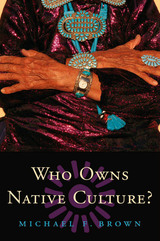
The practical and artistic creations of native peoples permeate everyday life in settler nations, from the design elements on our clothing to the plot-lines of books we read to our children. Rarely, however, do native communities benefit materially from this use of their heritage, a situation that drives growing resistance to what some denounce as "cultural theft."
Who Owns Native Culture? documents the efforts of indigenous peoples to redefine heritage as a proprietary resource. Michael Brown takes readers into settings where native peoples defend what they consider their cultural property: a courtroom in Darwin, Australia, where an Aboriginal artist and a clan leader bring suit against a textile firm that infringes sacred art; archives and museums in the United States, where Indian tribes seek control over early photographs and sound recordings collected in their communities; and the Mexican state of Chiapas, site of a bioprospecting venture whose legitimacy is questioned by native-rights activists.
By focusing on the complexity of actual cases, Brown casts light on indigenous claims in diverse fields--religion, art, sacred places, and botanical knowledge. He finds both genuine injustice and, among advocates for native peoples, a troubling tendency to mimic the privatizing logic of major corporations.
The author proposes alternative strategies for defending the heritage of vulnerable native communities without blocking the open communication essential to the life of pluralist democracies. Who Owns Native Culture? is a lively, accessible introduction to questions of cultural ownership, group privacy, intellectual property, and the recovery of indigenous identities.

In the summer of 1900, a zeppelin stayed aloft for a full eighteen minutes above Lake Constance and mankind found itself at the edge of a new world. Where many saw hope and the dawn of another era, one man saw a legal conundrum. Charles C. Moore, an obscure New York lawyer, began an inquiry that Stuart Banner returns to over a century later: in the age of airplanes, who can lay claim to the heavens?
The debate that ensued in the early twentieth century among lawyers, aviators, and the general public acknowledged the crucial challenge new technologies posed to traditional concepts of property. It hinged on the resolution of a host of broader legal issues being vigorously debated that pertained to the fine line between private and public property. To what extent did the Constitution allow the property rights of the nation’s landowners to be abridged? Where did the common law of property originate and how applicable was it to new technologies? Where in the skies could the boundaries between the power of the federal government and the authority of the states be traced?
Who Owns the Sky is the first book to tell this forgotten story of elusive property. A collection of curious tales questioning the ownership of airspace and a reconstruction of a truly novel moment in the history of American law, Banner’s book reminds us of the powerful and reciprocal relationship between technological innovation and the law—in the past as well as in the present.

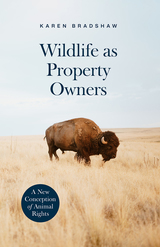
READERS
Browse our collection.
PUBLISHERS
See BiblioVault's publisher services.
STUDENT SERVICES
Files for college accessibility offices.
UChicago Accessibility Resources
home | accessibility | search | about | contact us
BiblioVault ® 2001 - 2025
The University of Chicago Press


